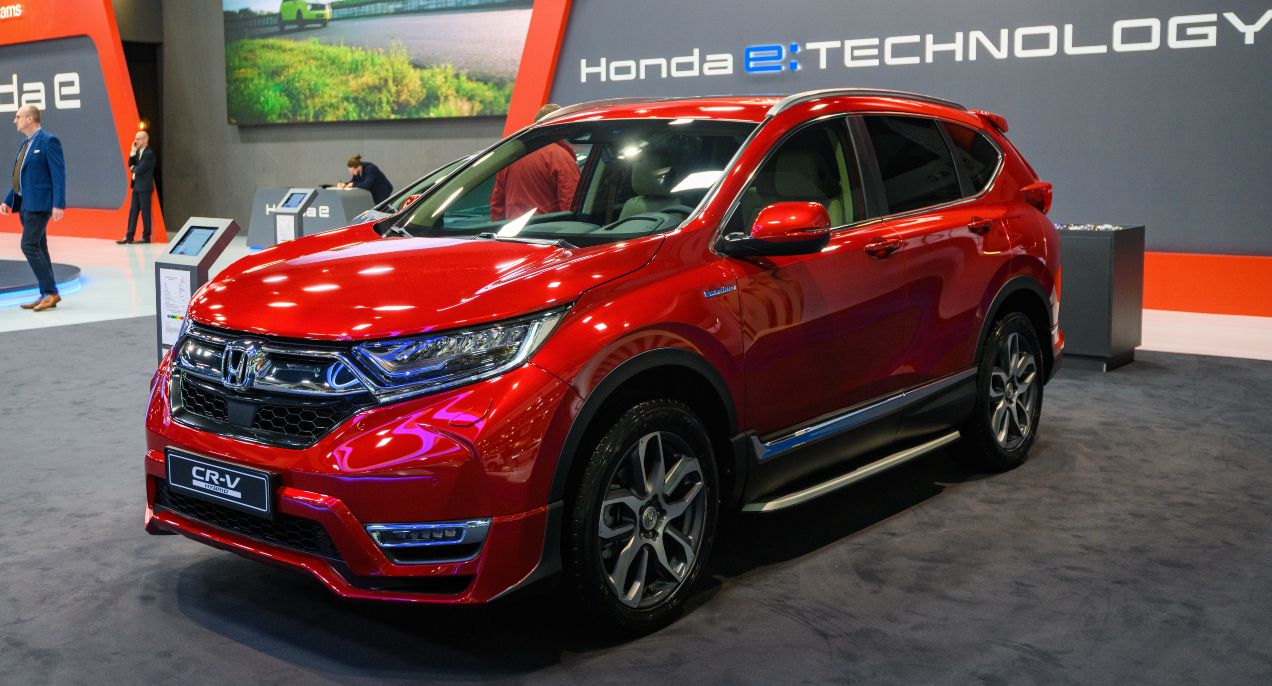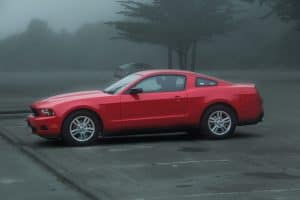The Pontiac Transport is a full-size van that was introduced in 1989 and built by General Motors. It is a popular vehicle for large groups due to its spacious interior, generous cargo capacity, and strong performance. But how much does this large van actually weigh? We will explore the answer to this question by looking at the Pontiac Transport’s curb weight and calculating how many tons that weight converts to. We will also discuss the factors that can affect the weight of the vehicle, such as the number of passengers and cargo that it is carrying. With this information, you can determine how many tons the Pontiac Transport can weigh and make informed decisions about how to best utilize its capacity.
How Many Tons Is A Bus?

When fully loaded, a bus can weigh up to 30,000 pounds, or 12 to 15 tons.
When it comes to the weight of a school bus, class or type play an important role. The bus is classified as either Type A, which carries fewer passengers, or Type D, which carries the most passengers, depending on its size. To tow a Skoolie, you must first be familiar with how to properly connect the school bus to the vehicle. When traveling with a Skoolie, it is critical to select a vehicle that can handle the weight of the vehicle without causing damage. Each vehicle is rated according to its manufacturer in order to maximize its towing capacity. The weight of a school bus is usually listed on its nameplate. It is a good idea to check the trailer lights before each trip to ensure they are functioning properly.
Skeeties are capable of shifting lanes when they are wider than normal, causing them to cut into the inside of a curve and, in some cases, ride on the curb. You can exit from the new lane by driving in the widest lane around the corner and then driving in the outside lane. In windy conditions, tow a Skoolie into a rest area, then pull it into a rest area and wait for it to pass.
A pickup truck is a popular choice for everything from work to recreation to convenience, and it’s a combination of power and convenience that’s hard to top. Although there are many different pickups available, not all work well. We’ve all heard the 1/2 ton weight classification, but it’s critical to understand the differences between different sizes to ensure you get the right truck for your needs. It weighs an average of 2.5 tons, which is significantly lighter than a commercial vehicle and nearly twice the weight of a standard car. This, in addition to their dependability, makes them an excellent choice for those looking for a workhorse without the added weight of a large truck. They can provide both power and towing capabilities, as well as provide a more fuel-efficient and cost-effective vehicle. Furthermore, 1/2 ton pickups come in a wide range of cab sizes, bed lengths, and drivetrain configurations, making them an excellent choice for drivers of all skill levels.
How Much Weight Can A Bus Carry?
A single wheel, or wheel that supports one end of an axle, is not permitted to weigh more than 10,500 pounds; additionally, a single axle’s gross weight shall not exceed 20,000 pounds.
How Many Tons Is An Average Suv?

The average SUV weighs between 4,000 and 6,000 pounds, which is equivalent to 2-3 tons. This is because SUVs are usually larger vehicles that are designed for off-roading, towing, and carrying more passengers and cargo than a standard sedan. However, the weight of an SUV can vary depending on the make and model, as some SUVs are heavier than others. The heaviest SUVs can weigh up to 8,000 pounds, or 4 tons.
An average car weighs about 1.4 tons, or 2,871 pounds. However, for those who want a large SUV, the Ford Excursion is the vehicle to consider. The Excursion is the longest and heaviest SUV ever built, dwarfing the 2500-series Chevy Suburban and Yukon XL in both size and weight. This car weighs in at a whopping 6.8 tons, or more than four times the weight of an average car. A new Ford Excursion has entered mass production as not only the longest and heaviest SUV ever made, but it also has a level of power, performance, and capability that rivals that of any other vehicle in its class. The Ford Excursion is a full-size SUV that comes equipped with a V10 engine and four-wheel drive system and is reliable, powerful, and capable. It is a great vehicle for those looking for a heavy-duty vehicle that can tackle tough terrain and extreme conditions.
The Versatility Of Suvs: Perfect For All Kinds Of Terrains
With their ability to provide more interior space and versatility than a standard car, SUVs are gaining popularity in the modern world. Mid-sized SUVs typically weigh between 5,000 and 6,000 pounds, while large SUVs typically weigh between 2,000 and 6,000 pounds. Depending on the make and model of the vehicle, this amount could range from 1.5 to 2.5 tons. For more specific weight measurements, the curb weight of a large car is 3,898 pounds (1,760 kilograms), a compact truck or SUV is 3,590 pounds (1,628 kilograms), a midsized truck or SUV is 4,404 pounds (1,997 kilograms), and a large truck or Standard SUVs are generally 78.0 inches long, 76.6 inches tall, and 112.2 inches wide on average. These measurements allow an SUV to be suitable for all terrain types, whether it is off-roading or driving in a city setting.
How Many Tons Is A Normal Car?

The weight of a normal car varies greatly depending on the make and model. Generally speaking, a normal car weighs between 1.5 and 2 tons. However, some larger vehicles such as SUVs, pickup trucks, and vans can weigh up to 6 tons or more. Additionally, luxury cars tend to be heavier than the average passenger car, typically ranging from 3 to 4 tons. Ultimately, the weight of a car is determined by its size, features, and equipment.
Today’s vehicles weigh around 4,100 pounds on average. It is possible to provide different weights for a vehicle. Electric vehicles, depending on their size, can weigh as much as heavy vehicles. Despite their heavy weight, the majority of consumers still prefer pickups and full-size SUVs. The Mini Cooper hardtop is the heaviest in the compact car segment, with a curb weight of over 3,100 pounds. The Mitsubishi Mirage is one of the lightest vehicles on the market, weighing in at 2,095 pounds. Taking a closer look at individual models will make it easier to gain a better understanding of where your vehicle falls.
Midsize cars are among the most popular vehicles on the road. This vehicle weights approximately 3,240 pounds on average. In comparison, a high-performance car such as the Porsche Cayman costs 3,100 pounds. Full-size luxury cars are said to weigh an average of 3,860 pounds. A full-size luxury SUV weighs more than 4,000 pounds on average. It is the lightest vehicle in the segment, weighing 3,300 pounds, and it is over 100 pounds lighter than the Honda CR-V. Compact SUV classes have a more consistent weight distribution than large SUV classes. The Jeep Compass and Volkswagen Tiguan are about 600 pounds apart.
The average weight of a non-luxury midsize SUV is roughly the same as that of a vehicle overall. The Lexus GX and Land Rover Range Rover Sport have a base weight of 5,400 pounds. The Jeep Wagoneer weighs 5,960 pounds and is the heaviest vehicle on the list. Heavy-duty trucks weigh around 4,700 pounds on average. The Nissan Titan is the heaviest vehicle on the market, weighing over 5,400 pounds. As a general rule, medium and small trucks are similar in terms of their size and utility. Electric vehicles have a higher weight than comparable gasoline-powered vehicles.
The curb weight of your vehicle is the simplest and most widely used method to determine its weight. The gross vehicle weight (GVW), as opposed to curb weight, is the amount of weight plus all of the items that can be carried in the vehicle. Gross vehicle weight rating (GVWR) – is the maximum weight allowed by law for a vehicle, and it is the maximum weight that you can safely drive. The weight of your vehicle influences everything from how it handles to how it is kept safe. Because moving a heavier vehicle takes more effort, it is especially important in fuel economy. Cars with a heftier body are also less likely to crash. Most people will not care about the handling characteristics of their vehicle.
The Medium Tactical Vehicle Replacement (MTVR, also known as a 7-ton) has proven to be an invaluable tool in the US Marine Corps since its introduction in 2001. With this truck, you not only can transport supplies, but you can also tow some of the most crucial combat systems, such as the High Mobility Artillery Rocket System and the lightweight 155mm Howitzer. If you want to calculate how many trucks you need to move your packages, look at the average 10-wheeler, which can carry 12-15 tons on average. The USMC has relied on the MTVR to achieve distinction in a wide range of terrain and environments due to its dependability, dependability, and cost-effectiveness. Its ability to transport heavy loads, navigate difficult terrain, and provide excellent protection makes it the go-to vehicle for the Marine Corps.
Weighing In On Car Weight
Some factors must be considered when estimating the weight of your car. It should come as no surprise that an average car weighs between 1.5 and 2.5 tons, though this varies depending on the make and model. Compact cars typically weigh between 2,600 and 3,000 pounds, whereas large cars typically weigh around 4,400 pounds. The average subcompact SUV, on the other hand, can weigh anywhere between 3,000 and 3,500 pounds. In most cases, the weight of vehicles in the same class varies greatly from manufacturer to manufacturer. It is best to consult the vehicle’s manual or contact your local car dealer if you want to estimate the weight of your car.
How Much Does A Car Weigh In Tons?
The amount of weight in a car varies depending on the vehicle you drive, but it generally ranges from 1.5 to 2.5 tons. Make: Cars in the same class will vary in weight depending on their manufacturer.
A typical car weighs around 2782 pounds, which weighs approximately 1.4 tons. Smaller vehicles are limited to a maximum weight of about 1.2 pounds. When it comes to vehicle curb weight, it refers to the weight of the vehicle as well as the necessary equipment and utilities. When it comes to the weight of the vehicle, the weight of the passenger and cargo payload increases. A typical car weighs around 1.4 tons on average, and weighs approximately 2800 pounds. The vast majority of vehicles under this restriction are sedans, small trucks, and sport utility vehicles. A large vehicle with an all-wheel drive and a wide range of clearance capable of being off-roaded is referred to as an SUV.
The massive weight of their frames necessitates the use of powerful engines to transport them. A sedan weighs between 1.4 and 1.5 tons, depending on the model, and is typically between 28 and 3000 pounds. There are heavier models that go far beyond this price point, particularly those in the luxury category. The Mulsanne, excluding limos and trucks, is the heaviest car, in terms of weight.
How Much Does A Average Car Weigh?
According to the U.S. Environmental Protection Agency, a car weighs around 4094. A small car weighs around 2600 pounds, whereas a large car weighs around 4400 pounds.
Explore The Fiat 500: Your Lightweight Solution For Driving Needs
When looking for a car with a weight of 500 kilograms, the Fiat 500 is an excellent choice. With its 1.2-liter engine and 5-speed manual transmission, this small, but powerful car is capable of handling all of your driving needs. Furthermore, there are many other features available, such as a digital speedometer, air conditioning, power windows, and a keyless entry system. You will save money on gas if you use it because it is lightweight and will not put strain on your fuel efficiency. Because it is small, it is easily maneuverable in tight spaces. A truck or heavy machinery would be the type of heavy machinery you’re looking for if it weighed a tonne. A tonne is equal to 2204.6 pounds, 1.102 short tons, and 0.984 long tons, for example. To transport this large amount of weight, a vehicle with a large capacity and powerful engine is required. Heavy-duty trucks like the Ford F-150 Super Duty, which are designed to transport such heavy loads, make excellent transportation vehicles. They have powerful engines and a large cargo capacity, allowing you to be certain that your goods will reach their final destination safely.